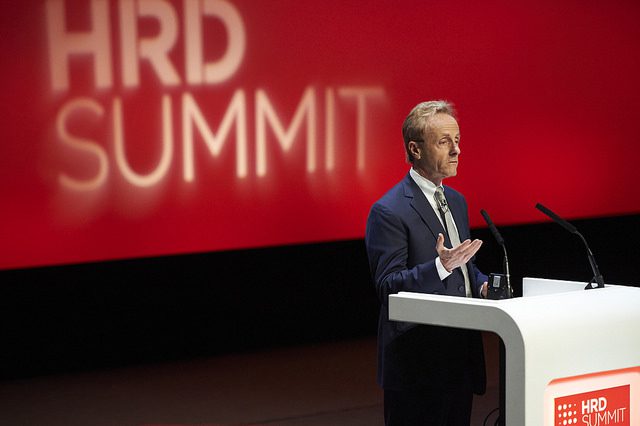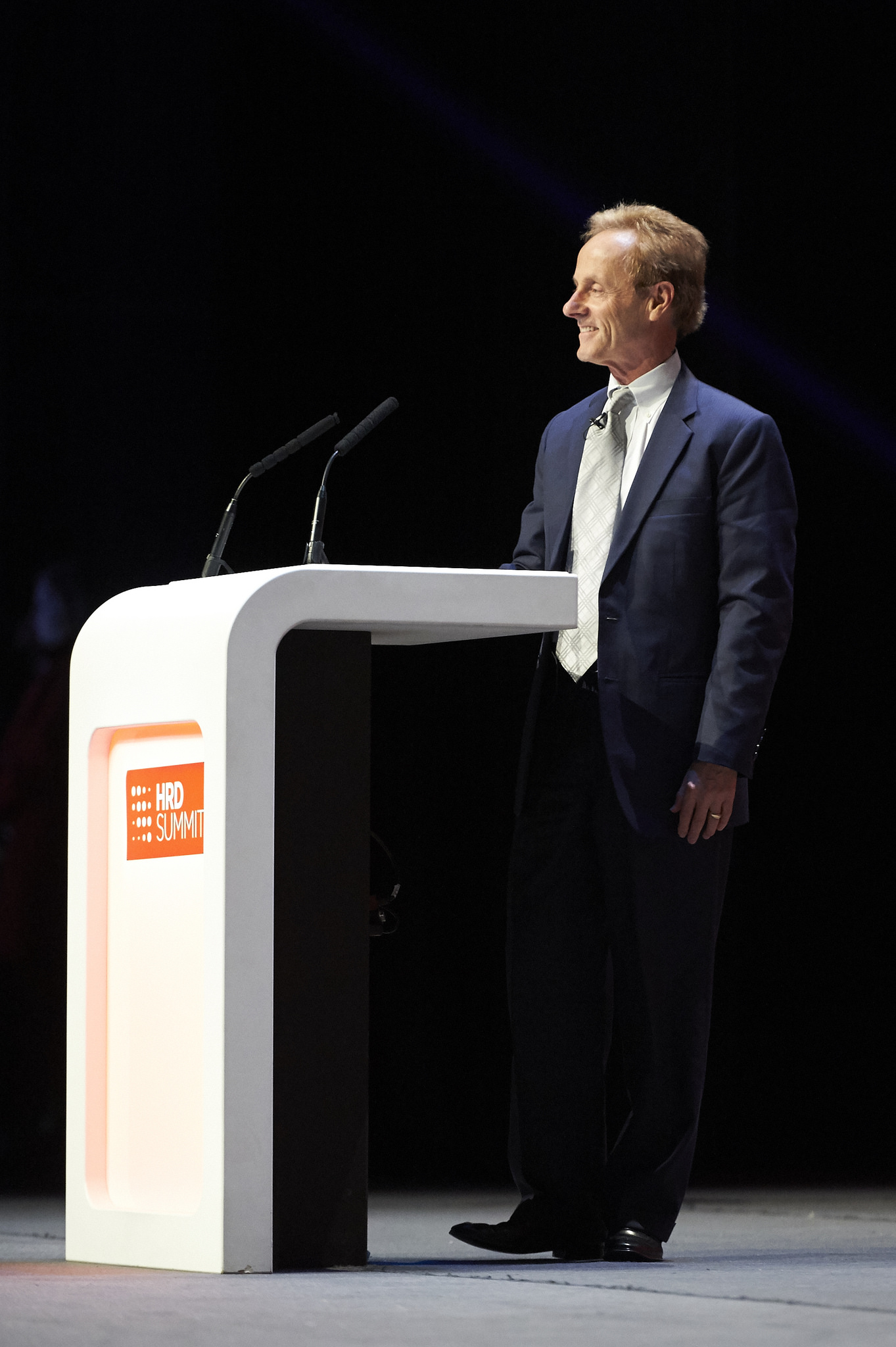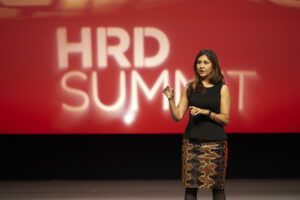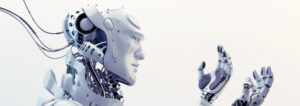Josh Bersin: HR's Essential Role In The New World Of Work
- 6 Min Read
Josh Bersin, Principal and Founder of Bersin at Deloitte, took to the stage as the keynote speaker on the second day of the 2018 HRD Summit.
- Author: Emily Sexton-Brown
- Date published: Feb 26, 2018
- Categories

“What we’re doing in HR now is more important than what I’ve seen in my 20 years as an analyst. HR has an essential role in the new world of work,” Bersin said.
A new world of technology
Bersin discussed the enormous impact of technology within these new working climates, explaining that he’d been in the technology industry for most of his career. He gave the audience a brief

timeline, indicating how most technology failed to work at the beginning of his career, then juxtaposed that with the example of Elon Musk recently shooting a Tesla car into space – and doing so successfully. He then cited that the most popular Christmas present last year was the Alexa robot – highlighting the ever-changing technological advancements we are living among.
There is a feeling of widespread apprehension in the air when technology integration is addressed with HR, but Bersin has other ideas. He said: “We’ve heard about how artificial intelligence is going to take over our jobs and eliminate a lot of the work we do. The more computers and technology we have, the more jobs are created. In the US we’re almost below a 4% unemployment rate; lots of jobs have been created – they’re just different types of jobs.”
Bersin explained that there’s been recent research done that studied all jobs created since the 2008 recession, and found that 98% of them are entirely new jobs. These mainly being alternative work agreements, allowing for more flexibility within roles.
“Employees are overwhelmed. I think one of the reasons productivity is slowing down is because we are distracted by emails, texts, social media – it’s a cognitive overload.”
Retention and productivity
On the topic of job creation, Bersin stated that the unemployment rate now is at an all-time low, jobs are everywhere, and CEOs know this. He said: “Right now the number one issue in business is attracting and retaining talent.”
He continued: “If we are finding it difficult to attract and retain talent – why, as HR professionals, are we allowing productivity to suffer?” Bersin urged attendees to use technology much more effectively, allowing it to measure engagement, which is one of the biggest areas of interest to any HR function. Interestingly Bersin shared a Glassdoor fact, showing that in 2008 (during the recession) average engagement scores were 3.11 and now 10 years later, they’ve risen to 3.2 – which isn’t much of a difference, clearly showing the need for change.

“Employees are overwhelmed. I think one of the reasons productivity is slowing down is because we are distracted by emails, texts, social media – it’s a cognitive overload,” Bersin explained. He then went onto discuss the issues millennials face, and how a recent study showed that two-thirds of millennials believe their own economic wellbeing will be less fortunate than their parents. Bersin urged organisations to take a more rounded and citizenship role within wider society.
Bersin indicated that three areas of HR need to be developed:
- Technology and AI
- Talent attraction and retention
- Productivity and wellbeing
A new future of work
To enter into this new and very changeable world of work, Bersin advised leaders to take a deeper look at five ways in which they can improve the overall working experience for employees:
- A new organisational structure
A huge issue for companies is the inability to operate digitally because the organisation’s structure stifles it. Companies are often organised around an industrial model that no longer works. Digital companies need to embrace and incorporate agile networks of teams, which are independent, yet interlinked groups with an optimum number of five within each group. People gravitate towards teams when they’re physically co-located, and formalities are taken away. Physical proximity creates intimacy and relationships, which will help improve engagement and productivity and create a shared culture along with shared leadership and potentially new talent practices. - Reinventing management
Be a coach not a boss, we need managers that empower people, build teams, coach people, and collect feedback. Therefore, we now need a different type of leader. If we consider that historically feedback would be carried out once per year in surveys and appraisals, we now (at Deloitte) have a continuous feedback process. Continuous performance management has certainly arrived, which helps coach, develop and identify poor performance. Only 4% of top management is aware of issues within organisations, but with this new wave of technology these tools can enable employees to provide real-time feedback. - Employee experience
When trying to define the issues that affect people at work employee experience data is crucial. Culture is a significant part of this – companies that define a mission and values outperform peers eight-fold over time; when people fit into the organisation’s culture they will rate your company higher. It’s also important to give people a healthier working experience and consider their overall wellbeing, which needs to move into the area of performance within HR. For example, looking to redesign the workplace could have a positive impact by helping with inclusion, fairness and the overall transparency of the business. - Career overhaul
In a world of ever-changing jobs, we need to build better career models and consider the aging workforce. How can we find roles for more senior people? Jobs are becoming stark contrasts between tech and soft skills. People can be retrained for the jobs of future with only 1 years’ worth of education. This option allows people to adapt and gain more skills, and leaders should be seizing this opportunity. - Embrace new technology
In the early 2000s, we went through an integrated talent management wave, after which we had the emergence of products that were cloud-based and easy-to-use (e.g. systems of engagement), but the work experience hasn’t improved. We can be smart with our working and use new technology to bring teams together; for instance, we can use tools to automatically survey people you email on regular basis to feedback on skills and then coach you on those skills – which will be driven by AI. We need a new breed of system to help us manage teams. As an HR team, you should talk to IT about this new breed of team-based tools, as they will become the HR platforms of the future.“More CEOs understand the job of the future is people-centric, but a lot don’t. Almost two-thirds of CEOs think that the key to becoming a digital business is to have new technology, but this isn’t so – people are the key. HR should have a new role, as Chief Productivity Officer,” Bersin concluded.
Here is Josh Bersin’s video interview from 2018’s HRD Summit, where he discussed the areas that need to change within HR. Bersin also highlighted why HR shouldn’t fear artificial intelligence and advises how AI should be embraced to make the working world more efficient enabling it to craft and enrich this new world of work:



